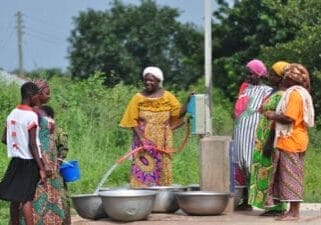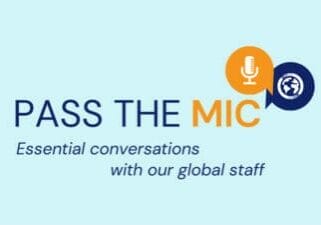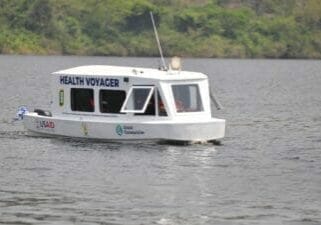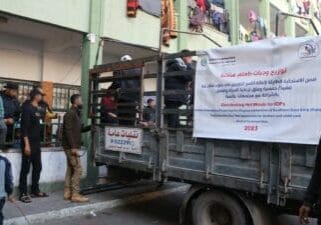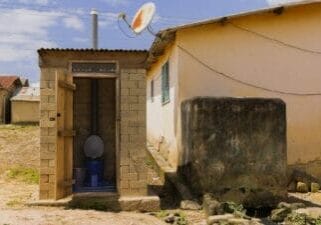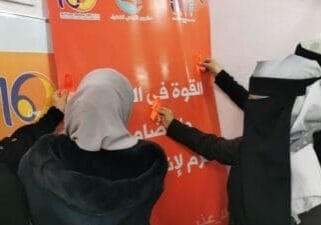News > Blog
Improving the Livelihoods & Living Conditions of Gaza Youth through WASH Projects
Published 04/28/2023 by Global Communities
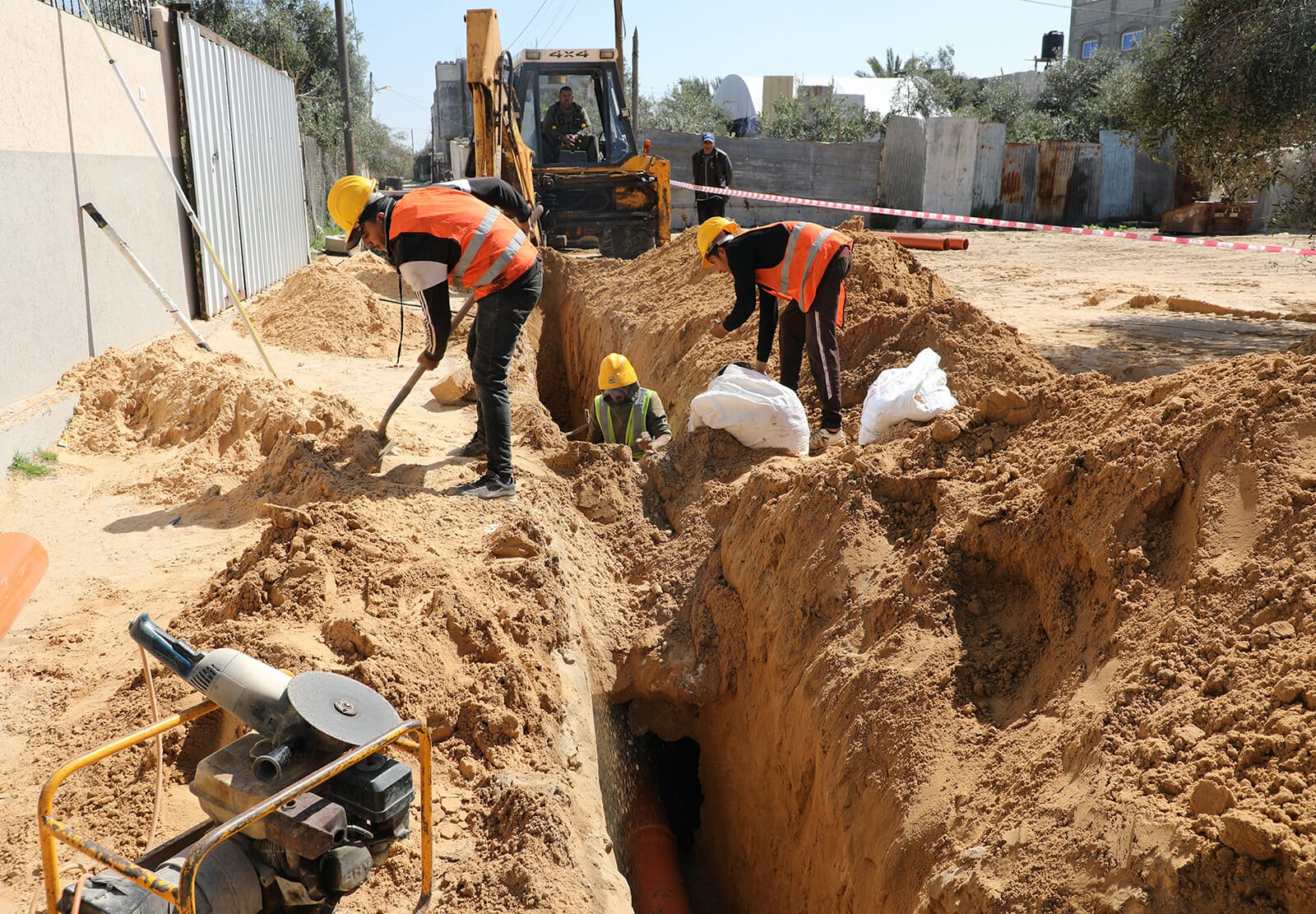
Global Communities recently began implementing 10 construction projects that will directly impact the water, sanitation and hygiene (WASH) needs of 3,497 households in the Gaza Strip. The projects include the installation of new water pipes, water tanks, toilets and shower taps as well as construction of a new sewage network and stormwater pipelines in seven localities of the resource-strapped enclave.
Of the nearly 2.3 million people who live in Gaza, only 10% have access to safe drinking water. In addition, approximately 40,000 homes do not have sewer connections and rely on nearby cesspits and aging septic tanks to manage their waste. Ongoing exposure to the chemical and biological contaminants in poorly treated or untreated sewage poses serious health risks to Gaza’s residents. According to RAND, more than a quarter of all reported disease in Gaza is caused by poor water quality and access, and waterborne diseases are the primary cause of illness in children.
Recent construction projects addressing these issues and service gaps are part of a larger program known as the Gaza Household WASH (GHW) Activity, which is implemented by Global Communities in partnership with Bayader for Environment and Development and Beit Lahia Development Association. By program’s end in September 2024, Global Communities anticipates completing a total of 26 WASH construction projects under GHW that will ultimately increase access to reliable WASH facilities and services for nearly 132,000 people in the Gaza Strip – all the while involving affected residents in every aspect of the process, from design to implementation.
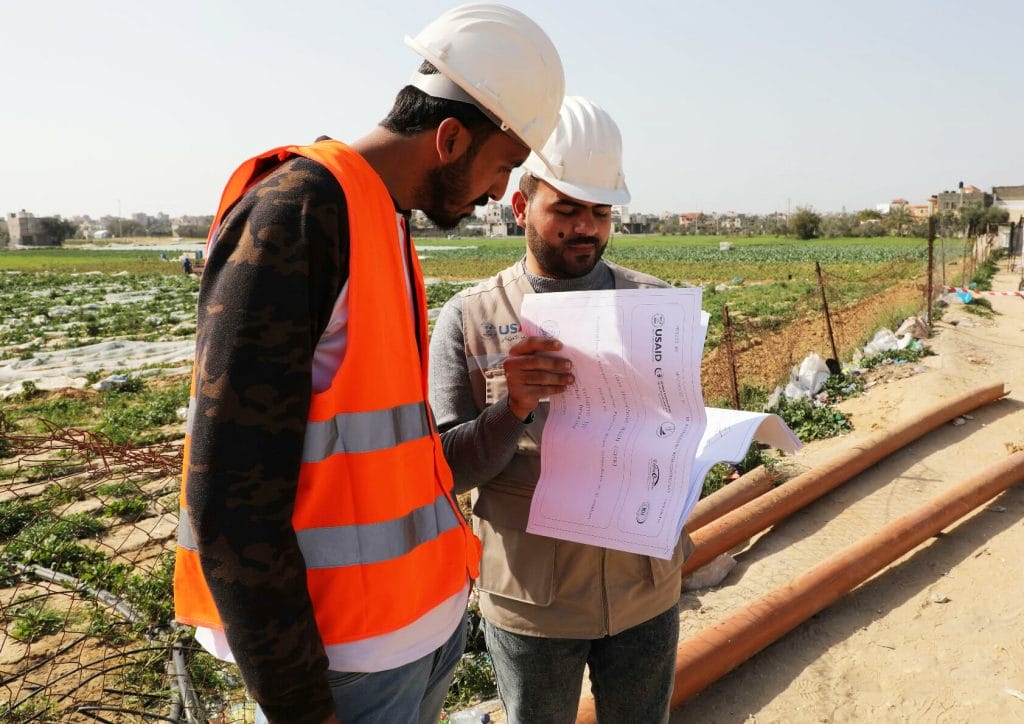
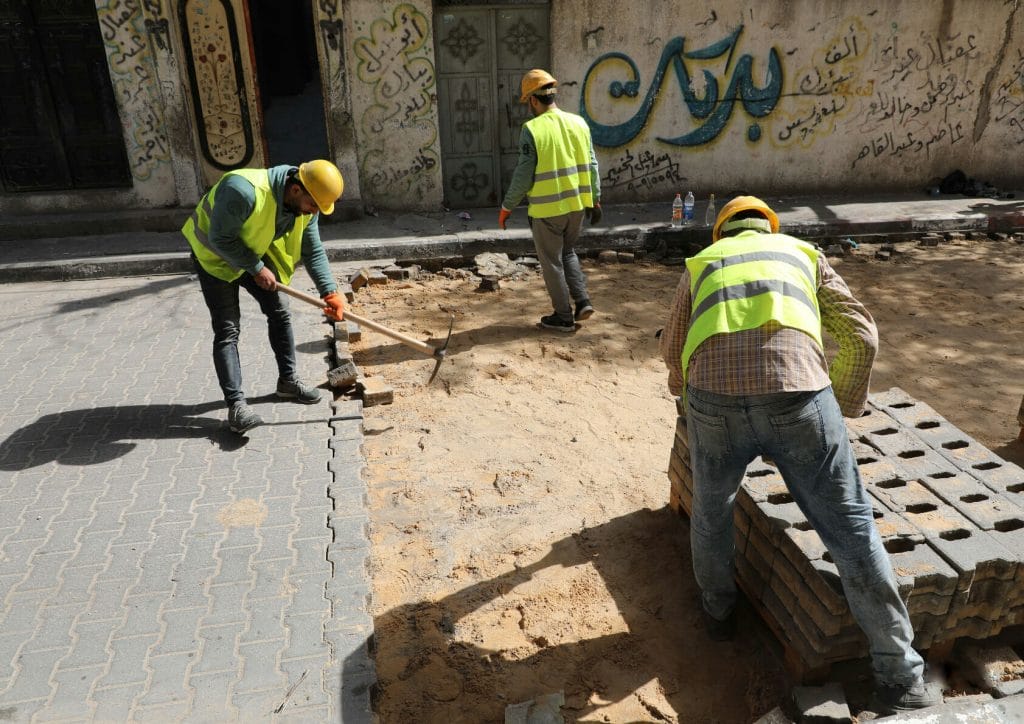
“Involving the local community is crucial,” said Emad Al Baba*, a member of a Local Advisory Committee (LAC) that Global Communities set up in Beit Lahia, where two construction projects are currently underway. “As local members, we can ensure that the services are reaching the targeted people and share any recommendations from our side. In addition, it is important to be aware of who will be working in our streets and who the focal points are to provide any support from our side.”
As Al Baba suggests, Global Communities created LACs to ensure program transparency, promote community engagement and strengthen the local ownership and sustainability of its interventions. Members include women, youth, people with disabilities and representatives from community-based organizations and the private sector, among other constituents. Global Communities holds regular as well as ad hoc meetings with the committees to update them on the progress of the construction projects, solicit input and to help ensure that actions and decisions are informed by a range of perspectives that serve the best interests of each community.
Aside from having a voice in the process, several residents are also getting a chance to earn money through short-term employment opportunities connected to the projects. Over the life of the GHW program, Global Communities will select at least 760 workers to complete unskilled construction jobs with input from the LACs and local partners. The construction companies that have been chosen to do the work are required to hire 10 unskilled laborers per month for each project.
The impact of the project will not only be about the water or wastewater networks installed but also helping the youth gain more income.”
Emad Al Baba, LAC member, Beit Lahia
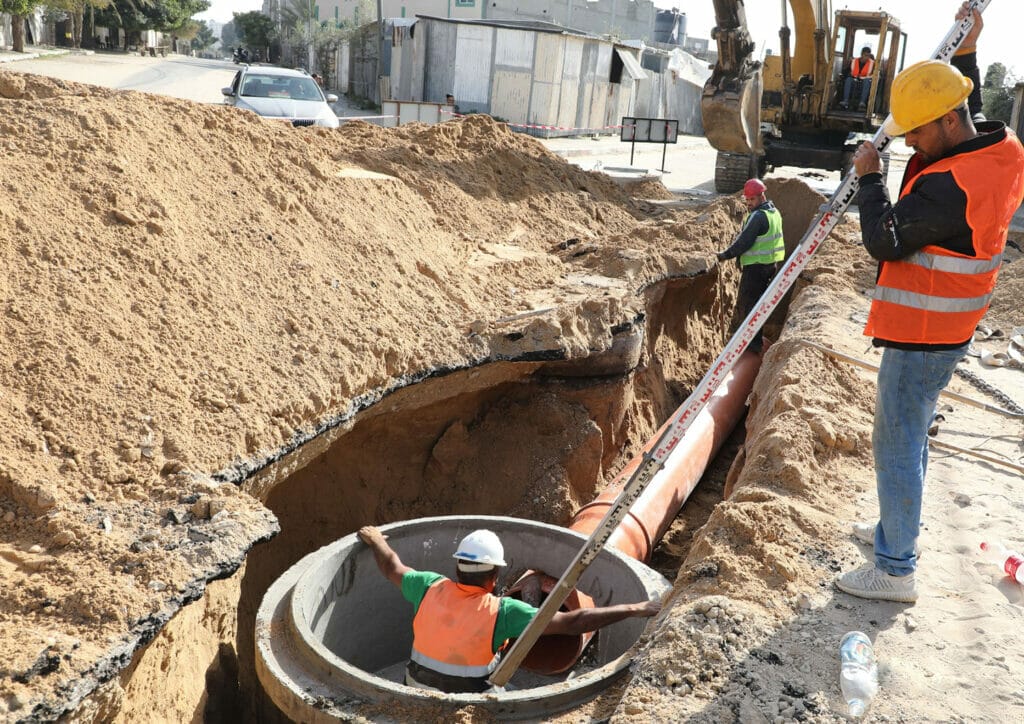
The job situation in the Gaza Strip is characterized by high unemployment rates and limited work opportunities, particularly for young people, women and those seeking unskilled labor positions. In 2021, the Palestinian Central Bureau of Statistics (PCBS) reported that the Gaza Strip faced an alarming unemployment rate of 48.6%, with youth unemployment reaching approximately 63.2%. This can be attributed to factors such as limited access to resources, lack of investment and limited access to education and skills development. Furthermore, skilled or educated individuals often cannot find suitable jobs in their fields due to the lack of diverse and sustainable economic sectors in the Gaza Strip.
Through the GHW program, Global Communities addresses some of these challenges by offering short-term work opportunities that improve living conditions, generate much-needed income for families and provide a sense of purpose and dignity for those struggling to find steady employment.
“Finding a job is very difficult these days and I have lots of responsibilities,” said Ayham*, a 20-year-old who is caring for his ill parents and three other family members who cannot work. Recently, Ayham was hired to provide unskilled labor at a construction site in Beit Lahia where new sewage pipelines will be installed to support the older deteriorated ones. The project, which will benefit 715 households, is expected to take 7 months.
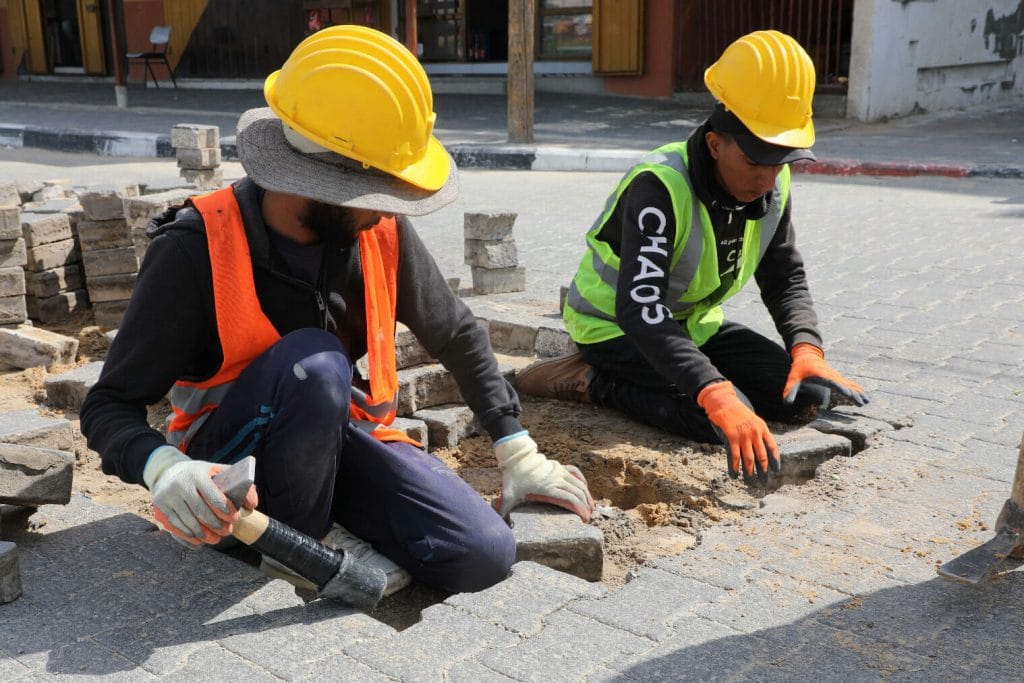
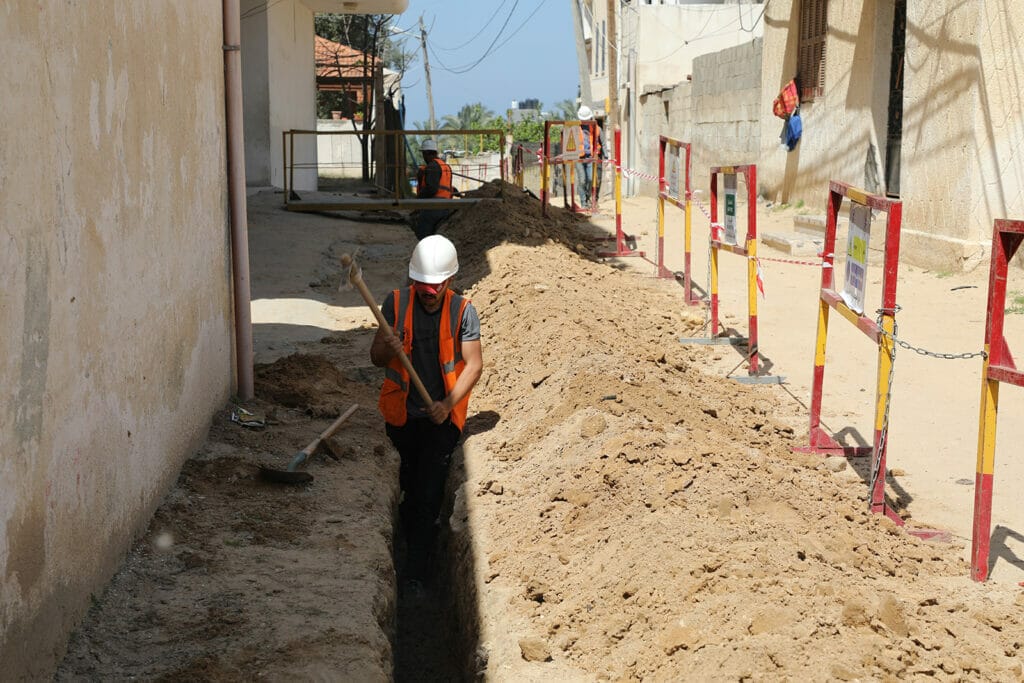
“This is a good chance for me to earn money,” he said. “… In addition, I am glad that this project will help improve the sewage system in our area. This will enhance the lives of the families living here.”
Similar to Ayham are Awni* (22) and Wael* (23), who were hired for a GHW construction project in Al Fukhari. A sewage system is being installed in the area for 85 households that currently rely on cesspits.
“I am grateful for any work opportunity that comes my way,” Wael said. “This chance will help me earn money and buy some necessities for my family.”
Each year, thousands of young people like Ayham, Awni and Wael enter the working population, with many lacking the necessary skills or qualifications for skilled labor roles. Short-term assignments, such as those provided by these GHW construction projects, help them obtain valuable on-the-job experience while also gaining an income. By incorporating marginalized groups into the workforce — even on a temporary basis — through this program, Global Communities and our partners play a crucial role in fostering a sense of community, belonging and participation, ultimately promoting a more inclusive future for all residents of the Gaza Strip.
*Names have been changed to maintain confidentiality.

